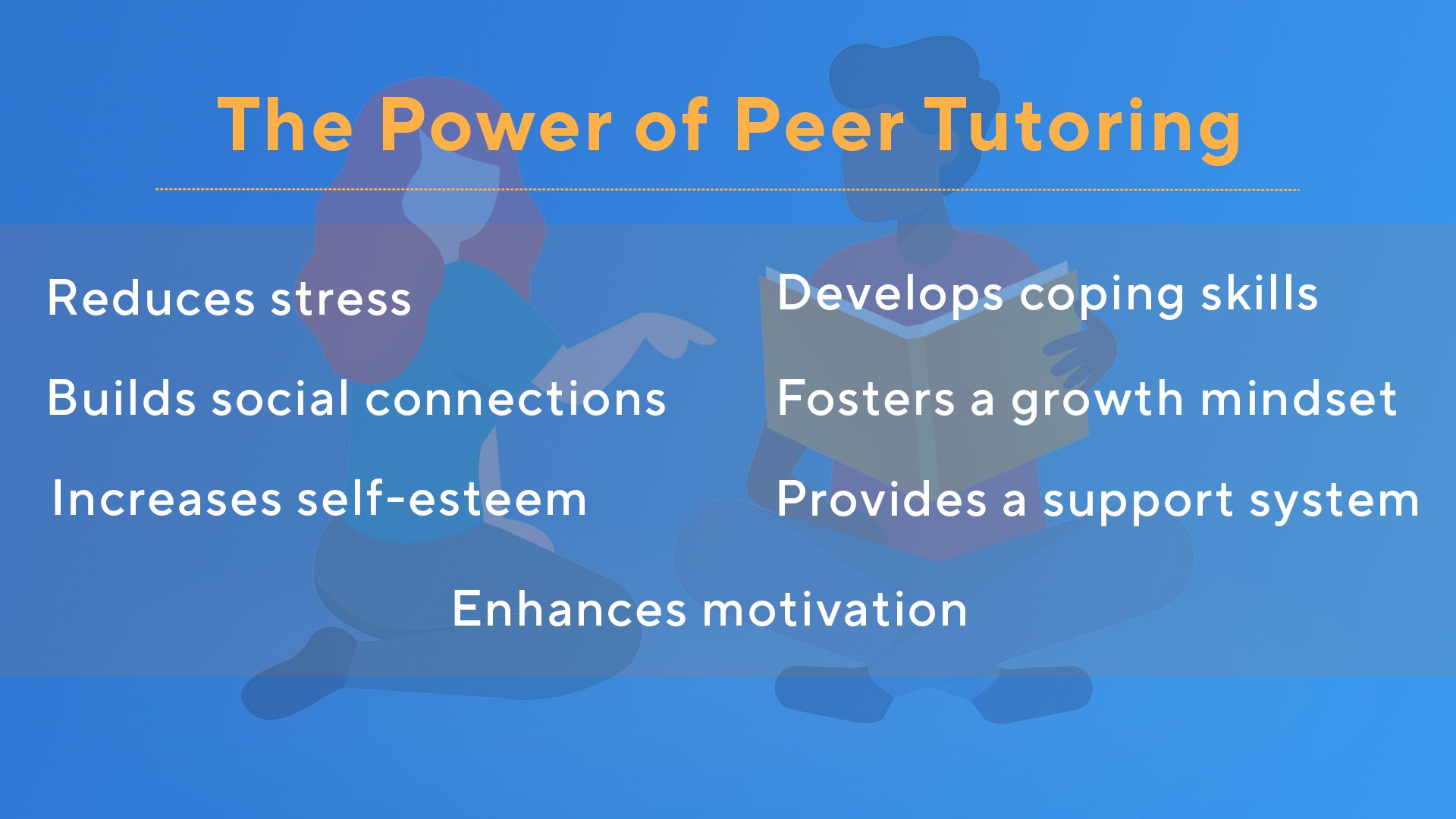As the mental health crisis among college and university students continues to grow, higher education institutions are increasingly exploring innovative approaches to provide support and promote overall well-being. One such approach is peer tutoring, which has been shown to not only improve academic performance but also positively impact mental health.
A recent article in The Chronicle of Higher Education highlights the need for innovative, scalable approaches to tackle mental health issues among college students. In his influential book, What Matters in College? Four Critical Years Revisited, Alexander Astin posits that peer relationships are the most significant factor influencing personal growth during undergraduate years. This suggests that peer-to-peer connections may be a key component in addressing mental health challenges. In this blog, we will explore the potential of peer tutoring as a supportive resource for college and university students grappling with mental health concerns.

The Power of Peer Tutoring
Peer tutoring involves one student helping another in a specific subject area or skill. It provides a collaborative learning environment where students can learn from each other and build connections. Research has shown that peer tutoring can not only improve academic performance but also positively impact mental health.
Here are some ways peer tutoring can support college and university students with mental health struggles:
Reducing stress and anxiety: Academic stress is a common concern among college and university students, often leading to anxiety and other mental health issues. Peer tutoring can help alleviate this stress by providing students with the support they need to better understand course material and improve their academic performance. With the help of tutor matching platforms, students can easily find a peer tutor in their area of need, fostering a stress-free learning environment.
Building social connections: College life can be isolating for some students, which can exacerbate mental health struggles. Peer tutoring encourages social interaction, allowing students to develop meaningful relationships with their peers. By connecting with peer tutors, students can expand their social network and alleviate feelings of isolation.
Increasing self-esteem: Poor academic performance can negatively impact a student's self-esteem and confidence. Peer tutoring can help students improve their grades, which in turn can boost their self-esteem. This approach allows students to receive tailored support to meet their specific needs, enhancing their confidence in their academic abilities.
Developing problem-solving and coping skills: Working with a peer tutor can help students develop essential problem-solving and coping skills, which are beneficial for managing stress and maintaining mental well-being. By engaging in collaborative learning, students can learn to navigate challenges more effectively.
Encouraging a growth mindset: Peer tutoring can help students adopt a growth mindset, where they view challenges as opportunities for growth and improvement. This mindset can lead to better resilience and mental health, helping students better manage the stresses of college life.
Providing a support system: Peer tutors can offer both academic and emotional support, which can be particularly beneficial for students who may be struggling with mental health issues. Providing students with the opportunity to facilitate the formation of supportive relationships between tutors and students allows for students to receive comprehensive assistance.
Enhancing motivation: Working with a peer tutor can help increase a student's motivation to succeed in their coursework, leading to a more positive outlook on their academic experience. As students connect with tutors who have successfully navigated similar challenges, they can draw inspiration and develop a stronger drive to achieve their academic goals.
Implementing Peer Tutoring on College Campuses
To successfully incorporate peer tutoring into the college experience, institutions should take several measures to ensure students can easily find and connect with qualified peer tutors. Colleges and universities can actively promote peer tutoring opportunities by:
- Encouraging faculty to include peer tutoring as an additional resource for students in their courses.
- Offering incentives for students to engage in peer tutoring, such as academic credit or recognition.
- Hosting events and workshops to raise awareness about the benefits of peer tutoring and its positive impact on mental health.
- Allowing students to choose safe, comfortable spaces on campus to be tutored, fostering a sense of security and trust between tutors and tutees.
- Providing training and support for peer tutors, equipping them with essential skills to effectively assist their peers in both academic and mental health matters.
With the rise of technology in higher education, the challenge of scaling peer tutoring programs in a cost-efficient manner has been overcome, opening new avenues of opportunity. By integrating technology with these strategies, peer tutoring can emerge as a formidable instrument in enhancing the mental health and academic success of college and university students.
Knack makes it easy for students to connect with peer tutors and provides a valuable resource for colleges and universities to implement this impactful support system. Want to learn more? Visit joinknack.com/partner.

